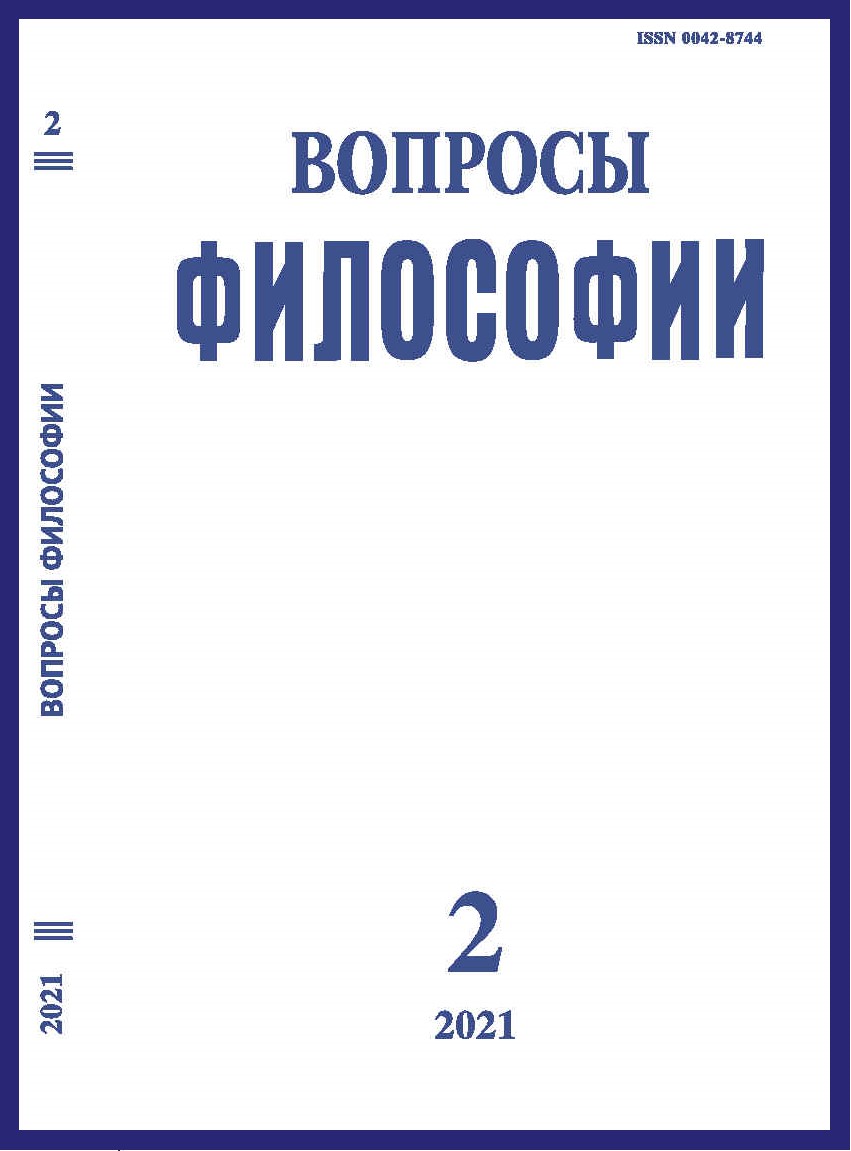Humanitarian Sciences in the Transition Era:Creation of the History and Theory of World CultureDepartment of Moscow State University.The Conversation of V.V. Mironov and N.A. Shchipkov
DOI:
https://doi.org/10.21146/0042-8744-2021-2-7-18Keywords:
V.A. Sadovnichiy, V.V. Ivanov, S.S. Averintsev, G.S. Knabe, A.Ya. Gurevich, V.V. Bibikhin, philosophy, faculty of philosophy, culture, cultural studies, ITMK, perestroika, deideologization, ideology, freedom, university, dialogue of culturesAbstract
“Voprosy filosofii” publishes one of the last interviews of the Dean of the faculty of philosophy of Lomonosov Moscow State University, associate member of the Russian Academy of Sciences, DSc in Philosophy V.V. Mironov, which he gave to his student, lecturer of The Ilya Glazunov Russian Academy of Painting, Sculpture and Architecture N.A. Shchipkov. The conversation focuses on the post-Soviet ideological reform of the faculty of philosophy and the creation of a new social science – cultural studies – the emergence of which has affected the methodological landscape of Russian Humanities. Thirty years ago, thanks to the initiative of the rector of Moscow State University V.A. Sadovnichy, organizational efforts of A.V. Panin, V.V. Mironov, V.Y. Savrei and other political and cultural figures such as R.M. Gorbacheva and D.S. Likhachev, the department of History and Theory of World culture appeared at the faculty of philosophy of Moscow University. Its field of study has always been extremely close to Vladimir Vasilyevich’s own scientific interests and it is no accident that he considered “Philosophy and metamorphoses of culture” to be one of his most important works; a work devoted not only to the problem of culture itself, but also to the place of the Humanities in modern philosophical studies and education.

